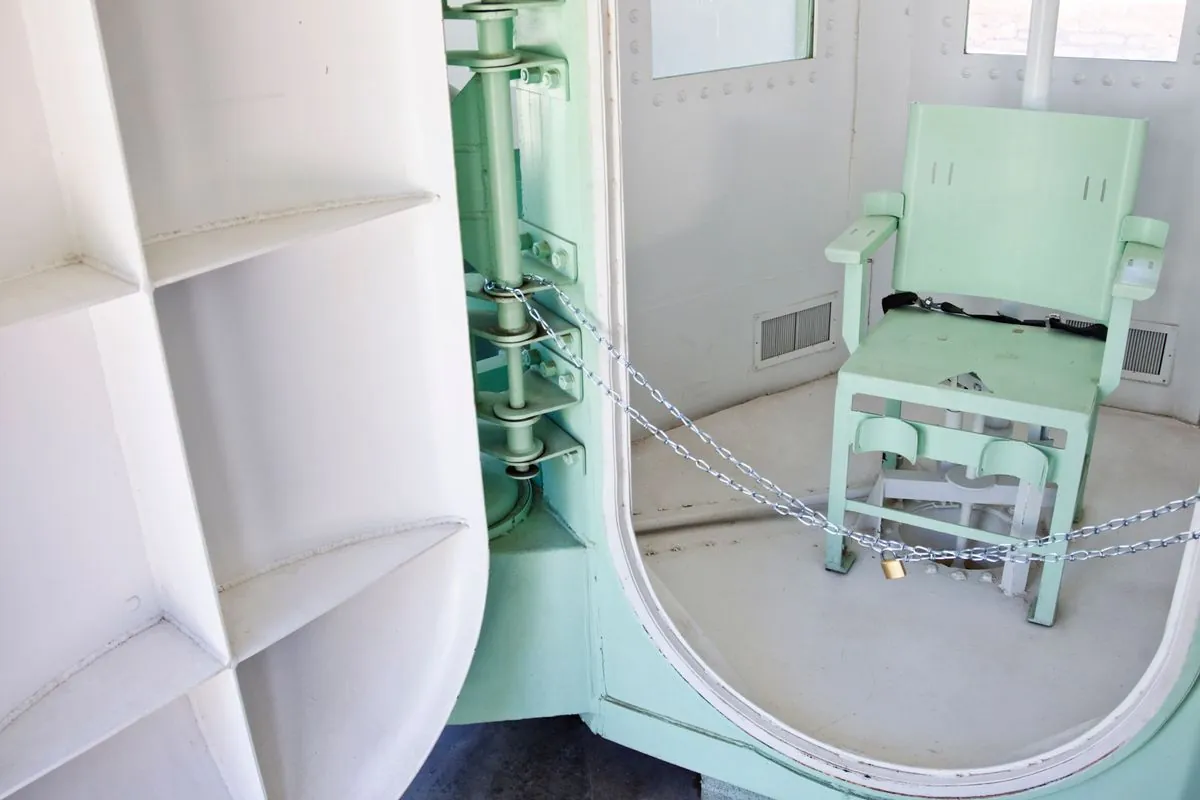Alabama is set to conduct its second nitrogen gas execution on September 26, 2024, as debates persist regarding the humaneness of this novel method. Alan Eugene Miller, 59, convicted of a triple homicide in 1999, is scheduled to be executed at a southern Alabama correctional facility.
The state's first nitrogen gas execution took place in January 2024, marking a significant shift in capital punishment methods. This technique involves administering pure nitrogen through a gas mask, causing death by oxygen deprivation. Nitrogen, comprising approximately 78% of Earth's atmosphere, is colorless, odorless, and tasteless, making it undetectable to the person being executed.
Alabama officials assert that the nitrogen hypoxia system is both reliable and humane. However, death penalty opponents and advocates for inmates facing nitrogen execution argue that the first execution revealed potential issues that require further scrutiny.
The execution of Kenneth Smith in January 2024 sparked controversy due to reports of seizure-like spasms lasting over two minutes, followed by several minutes of labored breathing. This has led to questions about the constitutionality of the method and whether it violates the prohibition on cruel and unusual punishment.
John Palombi, an attorney representing another inmate scheduled for nitrogen execution in November 2024, expressed concern about the state's lack of transparency and failure to reassess the method after the first execution.
Miller was convicted of killing Lee Holdbrooks, Christopher Scott Yancy, and Terry Jarvis in workplace shootings on August 5, 1999. The crimes shocked the suburban city of Pelham, located just south of Birmingham. Miller, a delivery truck driver, reportedly entered two workplaces armed with a handgun, claiming he was "tired of people starting rumors" about him.
The use of nitrogen for executions was first proposed in Oklahoma in 2015, and Alabama became the first state to implement it. Proponents argue that nitrogen asphyxiation is a humane method, citing its use in animal euthanasia. The American Veterinary Medical Association approves nitrogen for euthanizing some animals.
However, the United Nations has criticized the use of untested execution methods as potentially cruel and unusual punishment. The European Union has strict regulations on the export of goods that could be used for capital punishment, and some countries, including the UK, have banned the export of nitrogen gas for execution purposes.
Alabama's decision to schedule two more nitrogen executions without publicly addressing the concerns raised by the first one has drawn criticism. Death penalty opponents delivered petitions to Governor Kay Ivey, urging her to halt the execution.
"Alabama's nitrogen hypoxia system is reliable and humane."
It's worth noting that Alabama is one of 27 states that still maintain the death penalty as of 2024. The American Bar Association has called for a moratorium on executions until fairness and due process can be assured.
The state may be considering minor adjustments to execution procedures based on the settlement reached with Miller. These potential changes include using medical-grade nitrogen and administering a sedative beforehand. However, the exact terms of the agreement remain undisclosed.
As the debate continues, it's important to remember that the last public execution in the United States took place in Kentucky in 1936. The use of nitrogen gas for executions represents a significant shift in capital punishment methods, and its implementation continues to be a subject of intense scrutiny and ethical debate.
